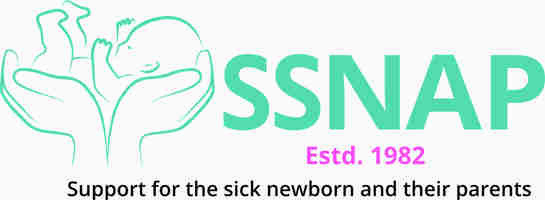The early years …
In 1981, Professor Sir Peter Tizard was the Professor of Paediatrics and Dr Andrew Wilkinson was the Consultant Paediatrician responsible for the Special Care Baby Unit (which was fondly known as SCBU – pronounced Ski-Boo). It was very clear to both of them that huge advances were being made thanks to research into the care of sick newborn babies. This would need additional funding, beyond what was being provided by the NHS. They could see that the only way forward would be to set up a charity to find the monies which would be needed.
Professor Tizard approached one of the secretaries in the Department (Madeleine) and together they identified a group of influential local people who had either had experience of SCBU themselves or who were close to those who had. Rosita Spencer-Churchill (who was then Duchess of Marlborough) offered to Chair the new group. A committee was gathered together including Sir Jeremy Mostyn, Lady Macclesfield, David and Vivienne Parry, Cessa Moore, Michael Alexander and Julie Bury.
A name was needed: that name needed to be “snappy”; and so Support for the Sick Newborn And their Parents was born.
A constitution was drawn up and SSNAP was registered with the Charity Commission. In January 1982, a letter was composed inviting the families of babies who had been cared for on the Unit to join the new charity. Over 1,500 copies of the letter were posted out on the 1st February 1982; replies came flooding in and SSNAP was active at last.
Fund-raising was the first activity aiming to provide an incubator and a ventilator. All over the county there were sponsored sporting activities – from toddler walks to horse rides; concerts were organised, talks given, and the donations came flooding in. The first membership badges were introduced – bright yellow plastic with the SSNAP logo on them.
Sweatshirts were organised in grey, cream and navy with the SSNAP logo on them. The labels which went on the babies’ incubators and cots were redesigned to include the SSNAP logo.
Radio Oxford organised a complete SSNAP morning for us to talk about our work and accept donations (a bit like a mini Children In Need day). This was a huge success with donations large and small, including one from a local business man who rang to donate £1,800 for a complete incubator (a large amount of money in those days). The publicity from that morning was tangible.
Not only parents and friends, but also the hospital staff joined in the fund-raising. The Laundry Ladies were particularly active – knitting, crocheting and sewing baby clothes for all shapes and sizes which they sold with the help of the Porters. A specific shop display was set up beside the Porters’ desk and SSNAP trading was in action.
And then there was the SSNAP cookery book … all one hundred and sixty two pages of it! Not only were there contributions from SSNAP families and friends, but also a large number of celebrities were approached. The book therefore included a recipe for pasties from our ex Prime Minister, Sir Harold Wilson; Richard Branson sent in his recipe for Apple and Rhubarb Almond Sponge. Contributions came from the Bishop of Oxford, Nigel Mansell, MPs and authors … including a classic recipe for Cotswold Fandango from Pam Ayres.
After two years, it was clear that SSNAP could do more than provide equipment. There was the tangible need for a space where parents could go for a much-needed break nearby to the Unit. The hospital agreed that we could convert a room just inside the entrance to the Baby Unit. SSNAP equipped this with comfortable furniture, basic facilities to make tea/coffee or to prepare a quick meal. The furniture included a convertible sofa bed for parents to stay the night. The room was called The Quiet Room. And it was immediately and constantly in use.
Fast forward over 40 years, the Newborn Care Unit can now care for up to 56 babies at any one time and is a Level 3 Centre, meaning that the most sick and premature babies from across the Thames Valley, and often further afield, are looked after here in Oxford.
When newborn babies need specialist, often lifesaving, medical care at birth it can be a traumatic and difficult time for parents and families. We are here to support parents, provide funding for specialist support and medical equipment as well as fund life changing research.




